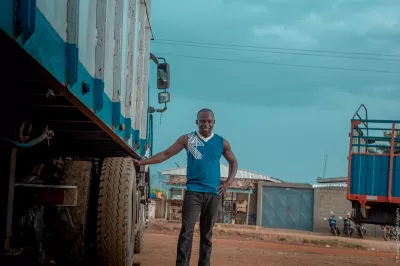Côte d’Ivoire: A Perfect Time for Mobile Money?
Côte d’Ivoire has seen its mobile money industry make significant progress in recent years. The latest results from the sector suggest good prospects moving forward. At the end of Q3 2012, there were 2.6 million registered mobile money clients across all providers in the market. Since the launch of mobile money in December 2008, Côte d’Ivoire has been the scene of intense competition between two major mobile network operators (MTN and Orange) and a nonbank e-money issuer (Celpaid).
The Ivoirian market presents specific characteristics that make the development of mobile money quite interesting. Côte d’Ivoire represents 33% of the money supply within the WAEMU zone (Source: BCEAO, 2011). The country has a mobile penetration rate of 95% (Source: Wireless Intelligence, Q3 2012) and a GDP per capita of around $1,800 in PPP terms, the highest in the WAEMU region (Source: World Bank, 2011).
The two mobile operators that have launched mobile money, MTN and Orange, have somewhat similar market shares each within a few percentage points of 30%. Each operates in a mobile money environment where they compete on strategies and market approaches that are constantly being refined as the market develops. These two operators are also capitalizing on their learning from similar deployments in other African markets. Orange Group has 8 mobile money deployments in Africa, including 4 in the WAEMU region, while MTN has 12 deployments on the continent, 3 of which are in WAEMU.
Côte d’Ivoire is actually the only country in WAEMU where these two actors are competing head to head in mobile money. They both offer the standard services including basic cash-in and cash-out, money transfers, merchant and bill payments, wage payments and insurance. Their expanding service offering is supported by the acceleration in the number of transaction points in their distribution networks which have seen tremendous growth this year. In fact, the number of agents has almost doubled this past year to over 3,000 agents between the two operators.
The consequences of such competition are clear. According to a recent study by CGAP, among the 120 initiatives of branchless banking throughout the world as of Q1 2012, 21 had more than 1 million registered customers and only 11 had more than 200,000 active customers. Côte d’Ivoire is part of this small group of countries that has an initiative with more than 1 million registered customers and more than 200,000 active customers. While the activity level of customers is still low overall, progress is constantly being made, reflecting the marketing efforts of the two mobile operators in mobile money.
However, these results in Côte d’Ivoire provoke a series of questions. Do the low-income and poor populations actually use these services? Recent research in Kenya (Jack & Suri) shows that mobile money is used by the very poor population only after several years of existence in the market. Research needs to be undertaken in other markets in order to prove that this is indeed the case. What is the value proposition of mobile money for low-income and poor people in its current form in Côte d’Ivoire? To what extent does this value proposition offer customers the means to better manage their finances, especially in relation to existing workarounds in the informal sector? For example, how can the large Burkinabe community that lives in Côte d’Ivoire take advantage of mobile money to send money back home?
In the WAEMU region, mobile money is seen by some as the key answer to promote access to financial services for the poor. However, despite significant progress, many challenges remain. Distribution networks are poorly developed in rural areas, the service offering is still too traditional and not customized enough to the needs of the poor, and inclusive education that appeals to both service providers and public authorities remains a weak link to overcome the barrier of using formal financial services by the target population.
It is true that there has been a lot of progress made to date, but there is still work to be done.
Cliquez-ici pour la version en Français.
Watch this short interview with Serigne Dioum as he discusses MTN Mobile Money in Cote d’Ivoire.




Comments
Indeed mobile phone provides
Indeed mobile phone provides great opportunity to pursue inclusive growth but it needs to be user friendly and less costly and easily accessible.
Add new comment